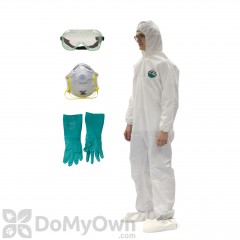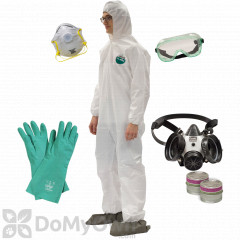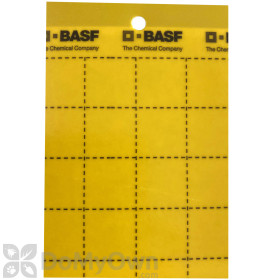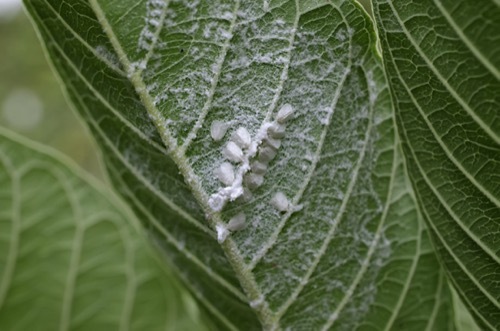
Whiteflies are very small sucking insects that can cause damage to a variety of lawn and garden plants by piercing the skin of a plant's leaves or stems and drinking the liquid inside. We can give you some pointers on what to look for if you think you may have whiteflies on your property.
Read this guide to find whiteflies around your yard before treatment. Not sure if you have whiteflies? Our Whitefly Identification Guide will help determine if the pests you see are whiteflies, moths, or another type of insect.
Where to Look for Whiteflies
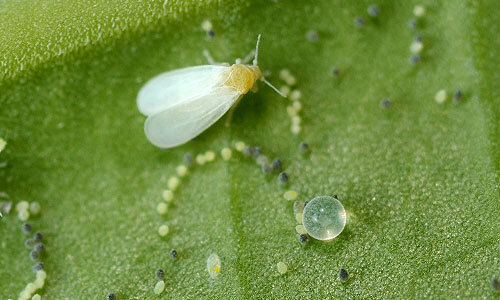
Whiteflies feed on the sap of plants--especially from young leaves of ornamental plants and some vegetables and crops. The leaves of plants are the easiest way to access this sap and are the most common place whiteflies are found.
Whiteflies often hang on the underside of leaves or in spots obscured by curled leaves, so be sure to fold out leaves and look on both sides when checking your landscaped area or garden for whiteflies.
Whitefly adults can overwinter on a host plant. As during the other seasons, they will most often take shelter on the underside of leaves.
Female adult whiteflies lay their eggs directly on the underside of leaves of host plants in an attempt to keep the eggs safe until they hatch. These eggs can sometimes find their way into the soil around a plant where they may stay until conditions are right for them to hatch. At that time, the young whiteflies will move on to find a host plant of their own.
Signs of Whiteflies
Whiteflies are so small, you may not recognize a whitefly infestation until plant damage becomes visible from nearby.
Whiteflies use their sucking mouthparts to drink the sap from plant leaves. This results in yellow, curled-up leaves that you should be able to spot with a casual inspection. When more damage occurs, overall plant health can be affected.
Honeydew is a sticky liquid generated as a byproduct when whiteflies feed on the liquid inside a plant. Ants often eat honeydew. Seeing ants on your plants may be a sign of whiteflies, so keep an eye out.
If you know that nitrogen levels are high in your soil, there's a good chance that whiteflies will discover that fact, too. Nitrogen-rich soil and plants provide a perfect home for unwanted whiteflies. This is an example of the importance of keeping your garden and ornamental plants healthy to avoid a whitefly infestation.
Sticky Tape Detection
Placing a sticky trap near a suspected whitefly infestation can be a great way to confirm which pests are nearby.
Do you have whiteflies in your garden? Learn about the treatment options available in our Whiteflies Treatment Guide. Click the right arrow below to learn more.

